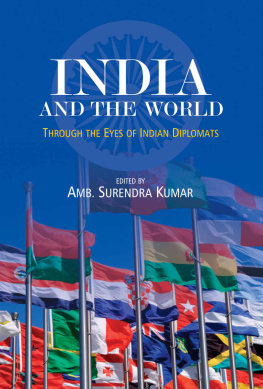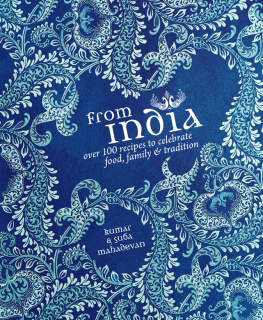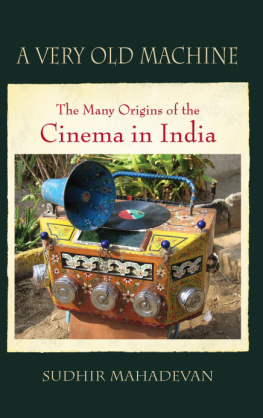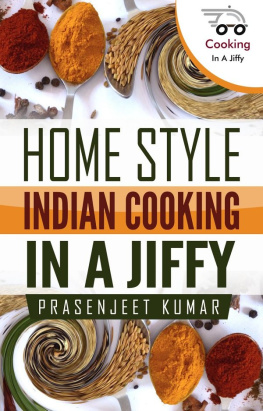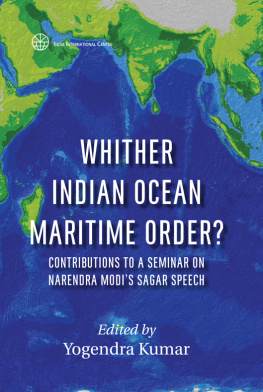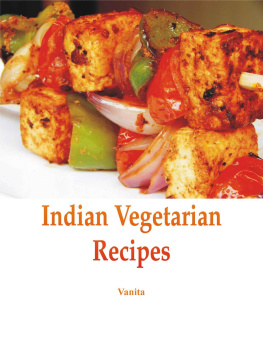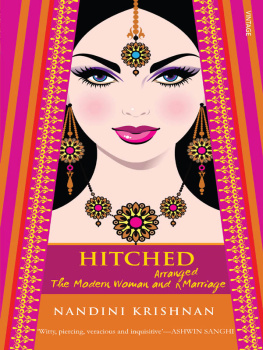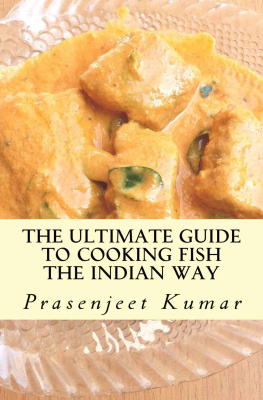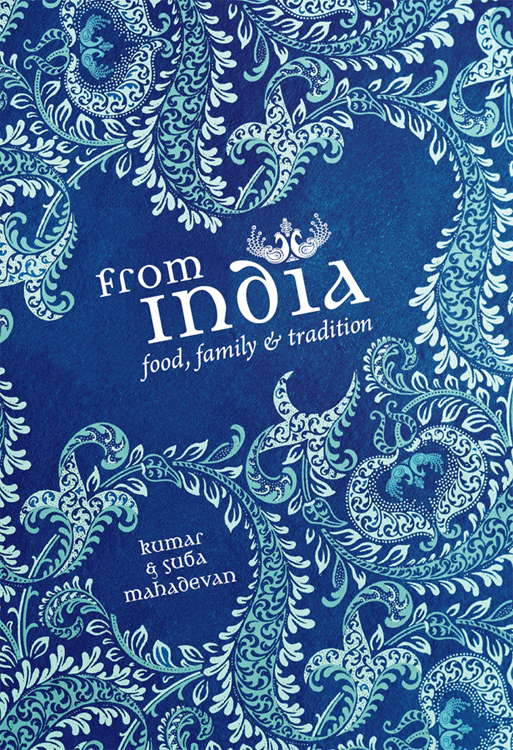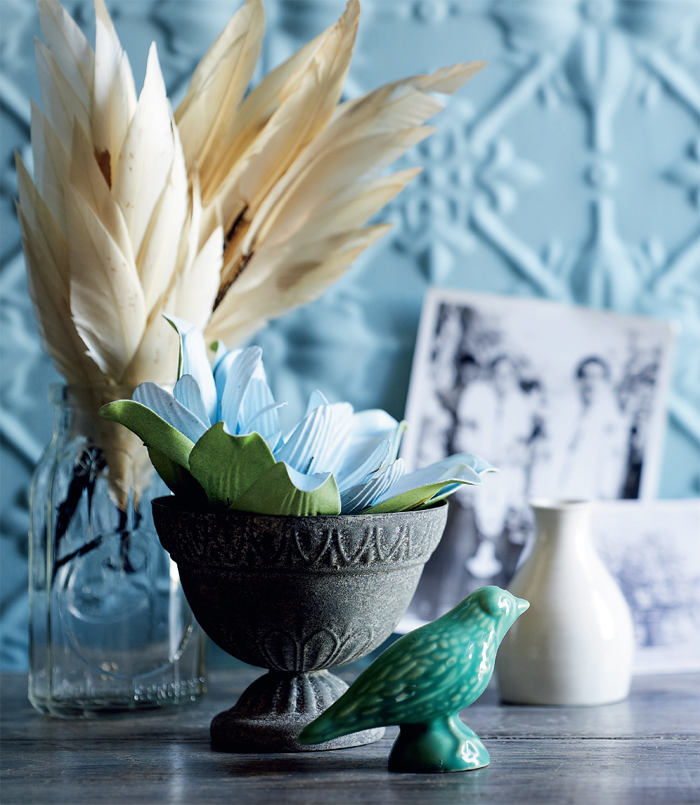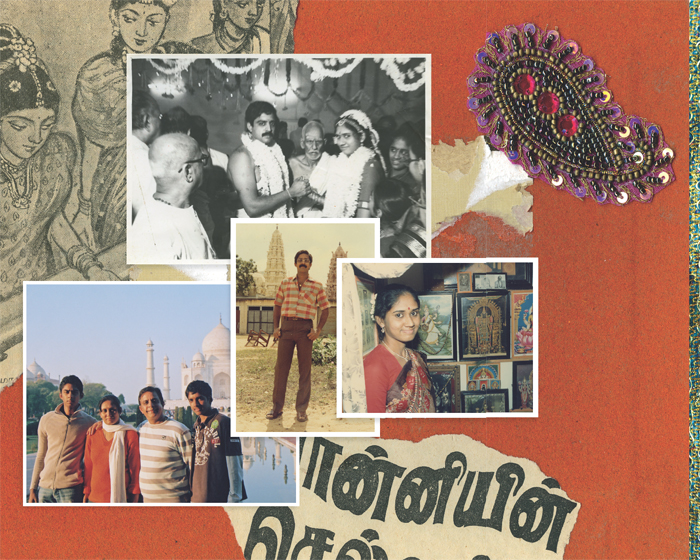foreword
In 1994, Australia was well on the way to becoming one of the great food nations. Restaurateurs including Gilbert Lau and Stephanie Alexander in Melbourne and Janni Kyritsis, Tony Bilson, Neil Perry and Tetsuya Wakuda in Sydney were leading the charge.
I was the food critic for the Sydney Morning Herald, sharing the role with Helen Greenwood. The Mod OzFrench style was well established, and I made it my mission to search Sydney for great ethnic restaurants. Gilbert Laus Flower Drum had shown us how good Cantonese cuisine can be, with stunningly good Australian produce combined with authentic Chinese techniques; Tetsuya was inventing his own modern Japanese/French hybrid cuisine to worldwide acclaim, but the other great ethnic cuisine, Indian, was a mess. I encountered fire-engine-red kebabs, cardboard-dry tandoori chicken, searingly hot vindaloos, soggy breads, and curries with boring, singular tastes. Under all the bad spicing lurked indifferent ingredients. This was an insult to a great cuisine. In London, Bombay Brasserie and The Red Fort had proven Indian cuisine had a place at the very top, so what was wrong with Australia, where Indian equalled takeaway or something cheap and nasty?
I stumbled into Abhis for a quick lunch on my way from a business meeting. It looked like any other suburban Indian, and my expectations were not high. It was a true revelation. The kebabs were not red, the tandoori chicken oozed with juices and flavour, tandoori lamb chops were clearly superior produce, the curries had an incredible array of complex, fresh tastes and the breads were perfect. This was great traditional Indian food, cooked with proper technique and passion. I was back the next night, which ended with Kumar proudly showing me his spice-grinding machine with which he made his own masalas every day.
I soon published a review, with the headline The Search is Over. Sydney finally had a great Indian restaurant. People flocked to Abhis. Many restaurants have such a crush of diners after a favourable review and then sink into obscurity, but Kumar welcomed the new diners, became their friends, introduced them to the complexities of Indian food and went on to open Akis.
Kumar at first wanted to take traditional Indian food more upmarket at Akis, but I suggested he do something different. Show us the new Indian cuisine, show us the regional specialities, give us dishes weve never heard of I urged. Kumar promised to serve the same food that was eaten at the best tables in Mumbai. Having been to India with Kumar I reckon he has done better. Kumar has simply invented his own style of Indian cuisine, based on classic Indian technique but with a wonderful Aussie accent thanks to our great produce and Kumars unending passion to be the best.
Kumar and Suba are totally dedicated to their restaurants, and Im sure we will continue to be surprised. For them, the search is not over.
Les Luxford
vannakkam
welcome to our table
Vannakkam is a Tamil saying meaning welcome. The people of this state, where I was born, have a belief that serving food to others is a service to mankind. Share our culture, family, traditions and our journey around India in this book, and learn to cook the food we love most.
kumar
Our family has an astrologer we turn to for advice when we need to make important decisions. Astrology is an ancient science and we are fortunate to have a good astrologer. He helped me find my wife, Suba, and weve been married for twenty-five years. It seemed like an odd match, but he was right. My life hasnt turned out the way some expected, but I couldnt be happier. Perhaps some things are written in the stars, but we cant always see it.
I grew up in a town called Tirunelveli, in the state of Tamil Nadu, near the southern tip of India. It sits on the western side of the Thamirabarani River, 700 kilometres southwest of the capital, Chennai. Everyone knew our place as House Number 108. I lived there with my grandmother Meenakshi, her two sons, my dad and uncle, and their wives, my mum and aunty, and my brother, who now lives in Australia, a sister and four cousins.
Patti, a term of respect for grandmother, is the biggest influence on my cooking. My grandmother is the SALT, the prime ingredient that shaped my childhood. Patti had an amazing sense of smell, which is something I got from her. Smell is my greatest sense. Its my driving force in the kitchen and a key part of taste. My chefs tell me I should have been a sniffer dog. Patti Meenakshi never cooked once her children married. She sat in the corner of the kitchen watching her daughters-in-law, telling them what to do, especially the order in which spices should be added, and then sniffing the air saying, Thats burnt! or The aroma is lost! She was a perfectionist.
When I started doing that to my mum, Gomathi, she responded, Youre worse than my mother-in-law!
We are vegetarians and Patti was very firm and strict about what made a good meal. It had to include four different vegetables, two types of lentils, two chutneys, pappadoms and pickles, and two rice dishes or chapatis, but all in small amounts. She preferred variety and quality to quantity. To this day, I like my meals the same way, with all the condiments, even when I get home from work at midnight and feel hungry. My wife thinks Im a little crazy, but she understands why.
Patti would serve us when we came home from school for lunch and teach us about the right flavour combinations and how to balance a meal. She had mystery tasting and testing games, asking us if we could pick up hidden spices and ingredients. Meals were often shared with friends and neighbours and with Patti in charge it made them fun, loving and also educational.
My grandmother is the salt , the prime
ingredient that shaped my childhood.
By the time I was seven, I was very curious about flavour and taste, but Mum and Dad would say to me, Control your tongue! They meant you wont be academic if you give importance to your tongue. Your brain will go numb from eating so much and you wont concentrate on study. Thats a Brahmin philosophy. I was raised Hindu as a Brahmin, the priestly class. Brahmins are quite academic and intellectual. Theyre not necessarily gourmets. They like clean tastes. Ive changed a lot since then, but my food is still about clean, clear flavours.


